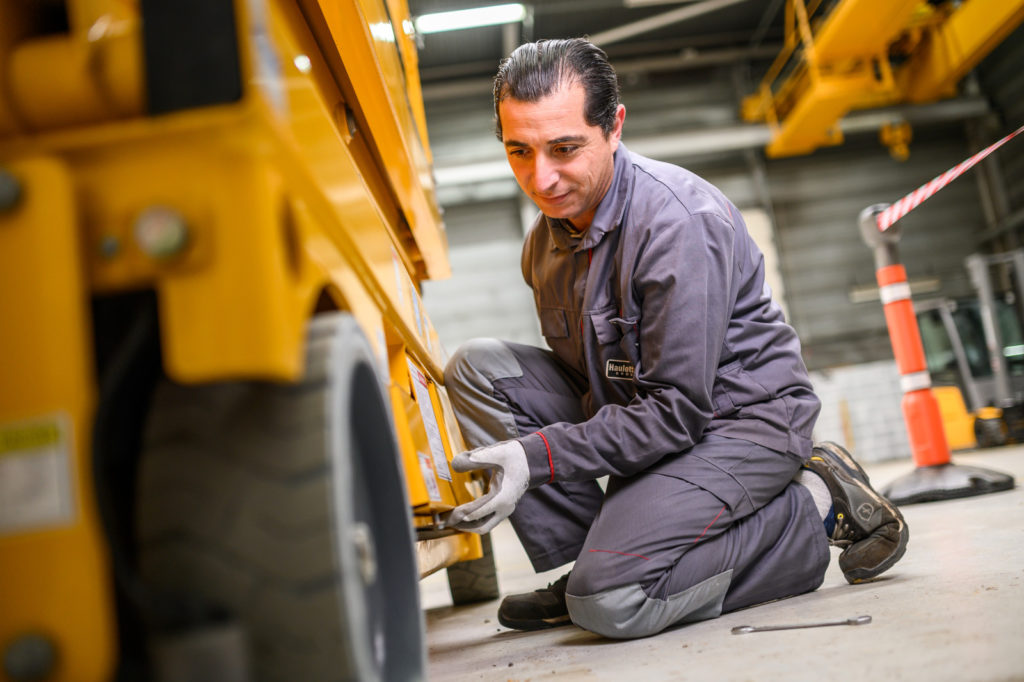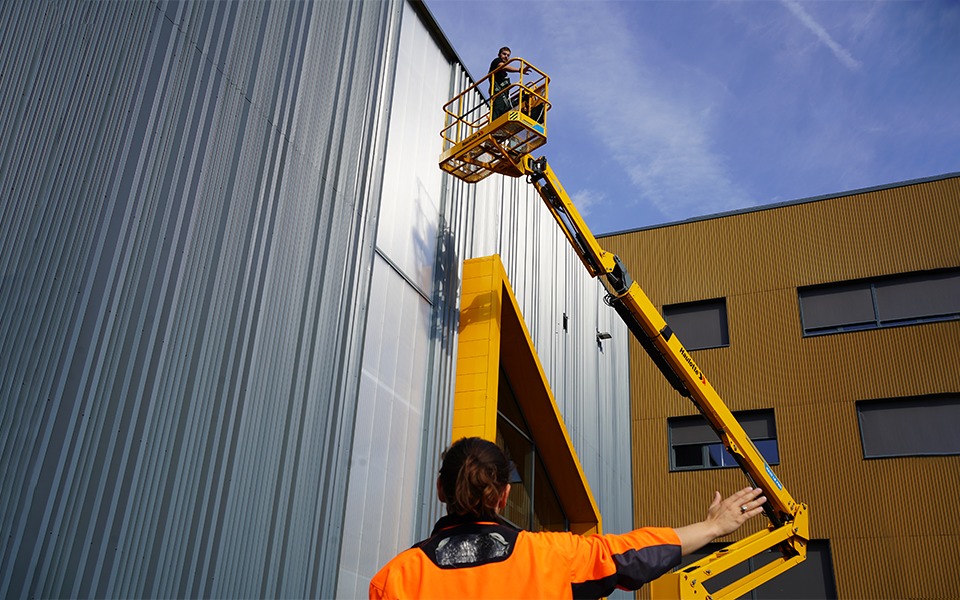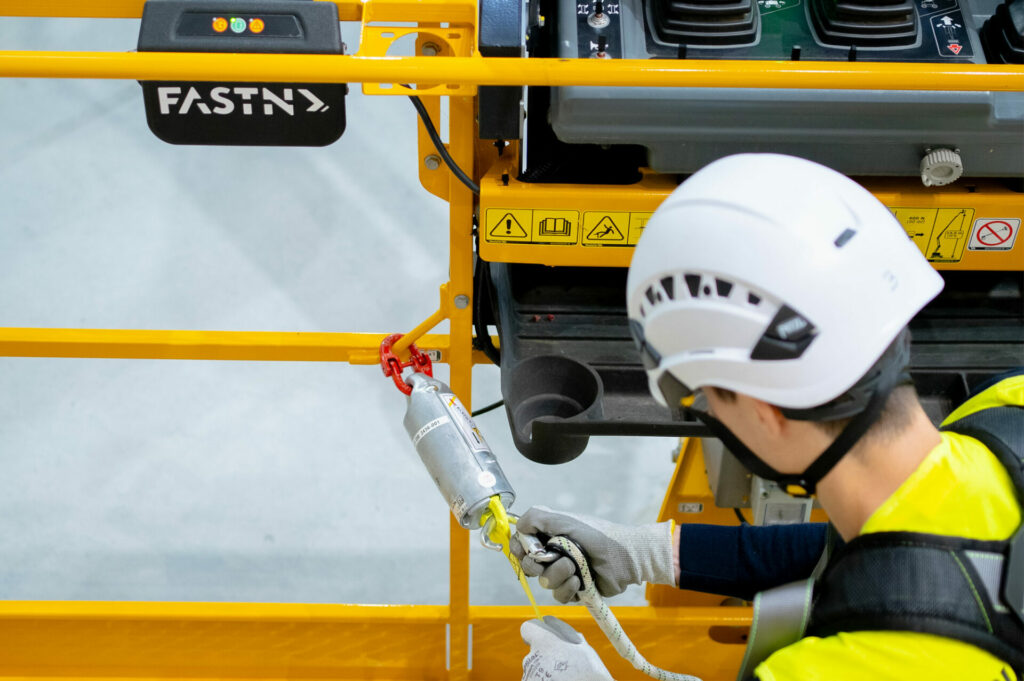At Haulotte, safety is more than a feature, it’s a responsibility we share with every user of our machines. One of the most critical yet often underestimated risks on worksites is the risk of mobile elevating work platforms (MEWPs) overturning. Despite ongoing training and increased awareness, overturn incidents continue to rise, leading to severe injuries, fatalities, and serious consequences for both workers and businesses.
Recent industry data has shown a 50% increase in fatal overturns* between January 2021 and December 2023. The vast majority of these incidents happen not because of mechanical failure, but because of unsuitable ground conditions or improper setup and operation.
Understanding the risks: why do MEWPs overturn?
Overturns can occur at multiple stages of MEWP use: during setup, movement, or operation.
Some common contributing factors include:
- Operating or driving on unstable, sloped, or soft ground
- Failing to use stabilizers or spreader pads where required
- Insufficient pre-use checks or ground assessments
- Moving MEWPs in an elevated position on unsuitable surfaces
- Overloading the platform, exceeding capacity
These oversights can lead to devastating outcomes:
- Injury or death of the operator or those nearby
- Equipment damage, sometimes beyond repair
- Delays and disruption to site operations
- Legal liability for contractors and companies
- Long-term psychological effects on crews
Safe operation starts with smart preparation
At Haulotte, we believe that overturns are preventable, and prevention starts with the ground. Here’s how you can help secure your site and your team:
- Perform a ground risk assessment
Before positioning or moving a MEWP, the ground must be inspected for stability, slope, and support. Is it paved, compacted, or loose soil? Is there any underground void or risk of collapse?
- Walk the route
If you need to move the machine across the site, walk the entire route on foot first. Spot hazards like slopes, potholes, soft spots, or surface transitions.
- Conduct pre-use inspections
Operators should carry out daily checks on both the MEWP and the ground conditions before any lift begins. Don’t assume yesterday’s surface is still safe today.
Only qualified, trained personnel should operate MEWPs. Haulotte offers certified training and familiarization programs to ensure users understand both the equipment and its limitations.
When in doubt, use stabilizers, outriggers, or spreader pads to help distribute weight and ensure stability, particularly on uneven or soft terrain.


FASTN: Securing operators before they even lift off
As part of its commitment to proactive safety, Haulotte has introduced FASTN, an intelligent anchorage detection system designed to ensure operators are securely fastened before elevating.
Installed directly in the platform, FASTN ensures that operators are properly wearing their harnesses by detecting whether the lanyard is correctly attached to the anchorage point.
This simple yet effective solution promotes correct safety behavior and reduces the risk of serious injury in the event of an incident, especially during potential overturns. By encouraging compliance without restricting productivity, FASTN plays a vital role in building safer worksites.
Haulotte solutions: built with safety at core
Haulotte machines are engineered with stability and safety in mind. Features like active load sensors, automatic wheel alignment, proportional controls, and our Activ’Shield Bar are designed to protect the operator, but safety is a shared responsibility.
No technology can compensate for poor ground assessment or a rushed setup.
Worksite safety begins long before the platform rises. It starts at ground level, with careful inspection, smart planning, and trained professionals. Overturns don’t just affect machinery; they affect people, families, and entire operations.
At Haulotte, we’re committed to working alongside you to reduce risks and elevate safety standards. Let’s make sure that every lift starts with solid ground beneath it.
*Source: IPAF Safety Campaign – « Stop Overturns », 2024 – https://www.ipaf.org/en/resource-library/stop-overturns
